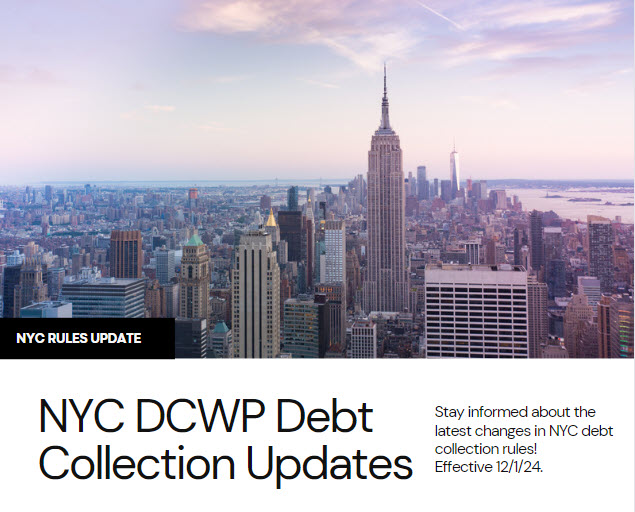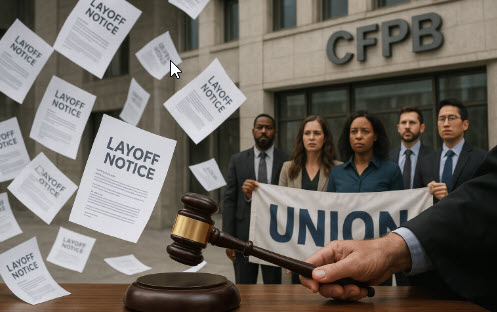The New York City Department of Consumer and Worker Protection (DCWP) has introduced significant amendments to its debt collection rules, following updates from the Consumer Financial Protection Bureau (CFPB). These changes, effective December 1, 2024, are designed to enhance the protection of consumers, particularly in terms of record retention, reporting requirements, and transparency in debt collection practices.
Overview of the New Rules
The updated regulations aim to address several key areas in debt collection. One of the primary goals is to ensure that collection agencies are more accountable by expanding their responsibilities in record-keeping and reporting. This move aligns with the broader efforts of the CFPB to increase transparency and fairness in the debt collection process.
Additionally, the DCWP has focused on improving how consumers are informed about their rights, particularly in relation to language access services. This ensures that non-English speaking consumers have the necessary information to navigate the debt collection process effectively.
Key Changes and Their Implications
The new rules bring about several important changes:
- Clarification of Definitions: The rules now provide clearer definitions of terms such as “debt collector” and “itemization reference date.” The definition of “debt collector” has been broadened to include both organizations and individuals, making it clear that companies are responsible for the actions of their employees in debt collection practices.
- Communication and Disclosure Requirements: There are new guidelines on how and when debt collectors can communicate with consumers. For instance, collectors are now allowed to send an initial electronic message solely to obtain permission for future electronic communications. Additionally, communication at a consumer’s workplace is permitted, but only with prior consent given directly to the collector.
- Handling of Disputes and Verifications: The rules stipulate that collection activities must cease upon receipt of a dispute or a request for verification. Collection can only resume once the consumer receives a timely verification of the debt. This provision ensures that consumers have the opportunity to challenge or verify their debts without ongoing collection pressure.
- Expired and Medical Debt: Specific guidelines have been introduced for expired and medical debt. For expired debts, the initial written notice must include a validation notice with the required expired debt disclosure. This notice must be provided before any other form of contact. In the case of medical debt, collectors are prohibited from reporting the debt to consumer reporting agencies, and they must disclose this restriction to consumers. If a consumer disputes or requests verification of one medical debt account, related accounts must be noted as disputed, though verification is only required for the specific account in question.
What This Means for Consumers and Collectors
For consumers, these changes represent a significant step toward greater transparency and protection in debt collection practices. The emphasis on clear communication, the right to dispute debts, and the requirement for verification before resuming collection activities are all designed to ensure that consumers are treated fairly and have the necessary information to manage their debts effectively.
For debt collectors, the new rules necessitate a thorough review of current practices to ensure compliance. The expanded definitions and increased accountability mean that collectors must be vigilant in their operations, particularly in how they communicate with consumers and handle disputes.
As these new rules take effect, both consumers and collectors in New York City will need to adapt to the changes. The DCWP’s amendments reflect a broader trend in regulatory efforts aimed at creating a more transparent and consumer-friendly debt collection process.

Author: Jennifer Evancic
Jennifer.Evancic@ResourceManagement.com
Jennifer Evancic is a third-party auditor valued by creditors and large organizations for her knowledge in call monitoring within the collections industry. With meticulous attention to detail and a firm grasp of regulatory requirements, she ensures compliance with clients’ criteria and state and federal regulations.
Jennifer audits collections calls, ensuring they meet client-specific criteria and comply with regulations, providing valuable insights and maintaining industry standards.
Beyond her auditing responsibilities, Jennifer takes the lead in organizing and facilitating monthly call calibrations. These sessions serve as a collaborative forum where clients and their vendors come together to discuss call monitoring results and address any findings or areas for improvement. Jennifer’s guidance fosters open communication and ensures alignment between clients and vendors, driving continuous improvement in collections practices.
Jennifer stays up-to-date with compliance and industry best practices by participating regularly in peer meetings, regulatory updates and industry webinars. This keeps her informed about emerging issues and ensures she remains a knowledgeable leader in collections compliance.
Sign Up for the Twice Monthly Newsletter
Just enter your email address at the top orange bar at:
Collection Compliance Experts – “The Power of Expertise: Oversight Perfected”
It’s that easy! Twice a month – we provide blog updates and Resources for the Collection and Industry Professional.
Your email is just for this newsletter. We never sell your information. No fee. Opt-out at any time.





